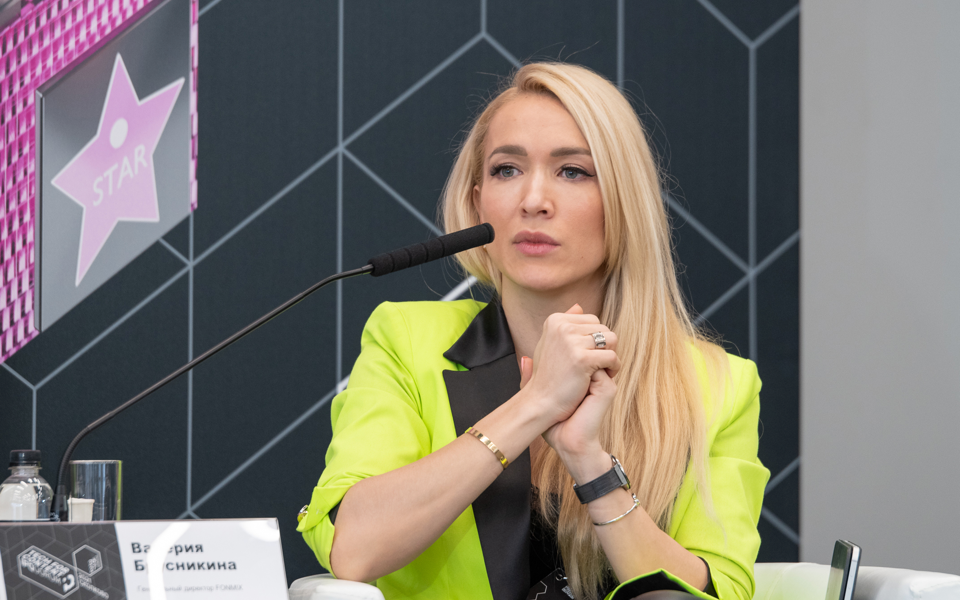A campaign has been launched to help musicians in Europe earn fairer revenues from their royalties for creative works. At the launch event yesterday from the Brussels Press Club an expert panel discussed how to reform the current royalty collection system by embracing the digital age so that artists can receive payments “quickly, efficiently, transparently and fairly.”
There is a strategic opportunity for musicians and their agents to improve the management of their income from the streaming market and collective rights management, to maximise royalty revenues through implementation of best technological solutions and practices for rights management.
The streaming market is showing 45% annual growth, and accounts for 19% of market share with total revenues of more than £2 billion. With much of the world in lockdown, this sales channel will continue to grow, particularly in the aftermath of the pandemic.
In 2020, music creators may have lost up to two-thirds of their regular income, which was previously generated from live concerts and festivals. Revenues from digital sources play a vital role in the livelihood of artists, and their attention has rightfully turned to the mechanisms of royalty collection and payment.

“It is very important to support artists and this campaign is an import initiative. Over 50 MEPs have signed a petition to this effect. What we owe artists is to respect their work and also pay for it. But under the schemes currently in place the majority of payments go only to big name artists so little left for others, the less popular artists. This is an unfair system. Artists must be paid for their work. We must support culture.”
Alexis Georgoulis MEP
However, as content creators around the globe have turned to their collective management organisations for answers, they found that the whole system is at best unreliable, and at worst – rigged against them. The only way to move forward and support the industry is to transform the obsolete collective rights management system and to ensure that royalties from various platforms are collected correctly, efficiently, and, most importantly, transparently.
For decades artists’ rights have been managed based on the collective rights management system, under which licensing of copyright and related rights is conducted by organisations acting on behalf of rights owners. The world has become digital, but the collective management organisations (CMOs) have largely remained untouched by progress. Collection and payment of royalties is in most cases calculated based on arbitrarily gathered statistical data the origins of which are not clear to the artists themselves.

“More transparency would be a great thing. It would be good for authors like me to know how much and where their work is sold and to receive proper royalties. It is ok to track things in one country but in multiple places it becomes more difficult so I can see a technology like Blockchain would add a level of security and transparency so that someone like me could track everything that happens to one’s work.”
Jan Taljaard, Author and Poet
The lack of transparency has become a systemic issue, hindering the growth of the digital music industry and receiving well-earned criticism from artists and labels. A couple of years ago the Spanish collective management organisation SGAE came under fire for several controversies concerning the way TV royalties were distributed by the society. A large-scale scam involving SGAE members as well as some Spanish broadcasters was uncovered after the investigation.
A string of issues dating back to the early 2000s has been tarnishing the image of another European CMO – GEMA, the government-mandated collecting society and performance rights organisation based in Germany. It has been consistently criticised by industry representatives for the lack of transparency, fraud, being “outdated, secretive, exploitative,” and imposing unreasonably high royalties on new technologies preventing new sources of revenues.
Another major CMO, the Italian organisation SIAE, also became a hot topic not so long ago by attracting the attention of the Italian Antitrust Authority after numerous reports from artists and private collective management companies. This time SIAE was accused of abusing its dominant position and using market distortion tactics aimed at excluding competitors from the copyrights collective management market – effectively blocking any innovative solutions from being integrated in the country and preventing artists from choosing other representatives. Previously the organisation had to deal with other accusations, such as irregularities concerning uneven royalty distribution and suspiciously low artist payments.
Such shady schemes employed by national CMOs have undermined the trust the industry had in the system. The world has become digital, but the collective rights management systems for royalties have largely remained untouched by progress. Artists have the right to expect complete accuracy and accountability to show all sources of income on a regular basis. With the latest technological solutions for processing and analysing royalty statements, this expectancy can be achieved with relative ease for the industry as a whole. With efficient software, it is possible to easily process royalties every month, giving artists a snapshot of their current position and tools to better manage their careers.
RUSSIA’S SUCCESS STORY
Reform of the system in Russia is a success story, where Blockchain has totally modernised the collective management system.
In the early 2000s the growth rate of consumer demand for creative products, following the rapid development of a global network of digital communication channels reaching out to a wide audience, caused a crisis in the Russian system of collective management organisations. The old systems were slow, lacked transparency and led to exploitation and crime.
The tensions reached a new height in 2016, when leading producers and musicians started to withdraw their rights en masse from the management of the Russian Authors’ Society (RAO), the oldest organisation in Russia responsible for payment of royalties to authors and right holders. The management in charge of the organisation at the time was subsequently charged with large-scale fraud.
The new management led by a leading Russian IP specialist and visionary Andrey Krichevsky was brought in to save the sinking ship and reinstate the lost trust of industry professionals in the organisation. The team initiated an independent audit of financial and economic activities, which revealed “ineffective use of funds and significant property losses.” After a year of intensive reforms the new management automated and modernised majority of key processes related to collection and payment of royalties, significantly improving the financial performance of RAO and increasing the client base.
At the “Pay the Artists!” campaign launch event yesterday the keynote speaker was Valeria Brusnikina, Portfolio Manager of IT projects of the IPChain Association which was established in 2017 and whose main goal is to set out standards, technologies, and tools for interaction between participants of the IP market in the digital world.

“Worldwide, the most important thing for artists is to be popular but also to be able to monetise what they do. The IPChain Association has established a business model for the market and to help artists maximise their income. We need to change the mind set but it takes time to do that so small steps are best. Rights holders must be given the instrument and tools. I stress that we don’t put personal data into Blockchain but our aim is to give artists the instruments they need to monetise their work and receive proper remuneration for their writings and music.”
Valeria Brusnikina, IP Chain Association
Valeria Brusnikina spoke at the conference of the advantages of automated systems for rights holders and CMOs. One is called FONMIX, a smart software solution to arrange music, video, advertising and information streaming at various locations. It can provide an additional source of income with the low cost of its software and integration.
Another advantage is that it offers an extensive up-to-date collection of licensed pop music covering all genres and style. Its musical content can be used legally in full accordance with national legislation.
Brusnikina said, “It is a user-friendly device which can be used across devices, including the PC, tablet and smartphone and also across platforms and applications, be it IOS, Android, Windows or the Web.”
“This is an advertising channel allowing various marketing activities and an effective means of promotion It’s also a technological platform for online streaming and music playback with a remote administration system.”
“Additionally, it’s a ‘turn-key’ solution offering technical support and 24/7 backing with background music for all types of venues.”
Another service provided by her organisation, called n’RIS, is a specialized digital service for creators, owners and IP users. One other option is GMM, a service based on AI and machine learning (ML), which allows someone to monitor and analyze the use of audio recordings throughout TV and radio broadcasts, streaming services, social media, podcasts and live performances with an automated reporting function on usage statistics.
Zana Messia, a young Swedish singer and songwriter speaking at the conference said , “It is impossible to make a profit just by selling your work or making music because of free downloads and streaming. Artists need to be adequately compensated for their work. This is a problem and also has an effect on innovation and culture. The best solution is to work with someone who will track and administer streaming but even this is not perfect and an independent artist cannot afford this.”

“Technology is also another possible answer and Blockchain, for instance, can help artists get back on track and profit from their work. I agree it is important to stress the importance of this and push for change. I strongly feel that, traditionally, change only comes from practical solutions so there needs to be a mechanism to do that such as IP chain and similar mechanisms. This technology and this platform will not eliminate rights organisations but will supplement them and offer something that currently does not exist. The IP chain is very comprehensive and has access to many different services. Everything I have heard today is music to my ears.”
Zana Messia, Singer and songwriter
The conference heard of the need to transform the “obsolete” collective rights management system to ensure that royalties from various platforms are collected “correctly, efficiently, and, most importantly, transparently.”
It was said that IPChain now serves as the basis for more services and solutions built to address specific industry needs – royalty collection and payment for CMOs, licensing, patenting, IP depositing, audio branding and many others.
An emerging solution for more transparency in the music industry and royalty distribution lies in the use of Blockchain, the launch conference concluded.

“EU copyright law is very responsive to new technology and a new EU directive states that ‘the rapid technological development can continue to be transformative. It is clear the IPChain Association and associated business companies fall into this context.”
Mark Clough, QC, Senior Counsel, Dentons
A copy of the full recording of the conference can be viewed here on the Brussels Press Club TV channel.




